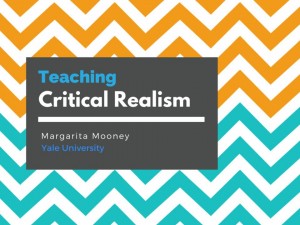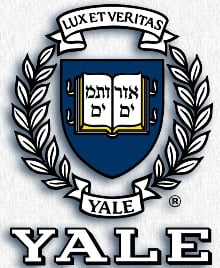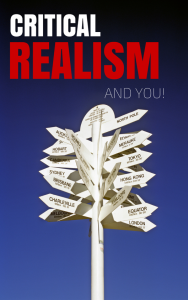 Part 1 in a series. Click here for my podcast interview on Pope Benedict XVI’s visit to Cuba, hosted by Research on Religion.
Part 1 in a series. Click here for my podcast interview on Pope Benedict XVI’s visit to Cuba, hosted by Research on Religion.
Perhaps by now you have seen one of these images of two ideological opposites, Pope Benedict XVI and Cuba’s Fidel Castro, who met for 30 minutes at the end of the Pope’s visit to Cuba in March. If you don’t know the history of Cuban communism or the main themes of Benedict’s writings on liberty, reason and truth, you may have missed the significance of his words to the Cuban people. For example, Benedict’s profound statement “No hay patria sin virtud (“there is no authentic fatherland without virtue”) seemed to be a play on the Cuban slogan “patria o muerte” (fatherland or death). As I’ve written before about the contradictions of Cuban communism, there is nothing virtuous in denying people liberty in order to achieve a real or supposed collective well being.
As a college student with great interest in development in Latin America, I made my first trip to Cuba (my mother’s homeland) in 1994. From 1994-2006, I traveled to Cuba 7 times. (In case you are wondering, although traveling to Cuba for tourism or business is prohibited, travel for Cuban-Americans like myself to the island is not prohibited by US law). During my many trips, I became close friends with a group of young Cubans in Santiago who are very active in the Catholic Church. This March, the Pope first visited Santiago. One friend in Santiago, an active Catholic and a member of the political group Christian Liberation Movement, who I will call Rodrigo, wrote to me,
“I’m exhausted but seeing the Pope has renewed my spirit. I was at the Mass and at his pilgrimage to Our Lady of Charity. His words words of hope echoed with the heart of all Cubans. It’s hard to express what is is like to have him so near; you can see goodness and purity incarnate in a human being.”
Watching Pope Benedict celebrate Mass on Wednesday, March 28th, 2012, I was struck by several themes in his homily, all themes of his extensive writings, but which take on particular significance in Cuba. Those themes are: trust in God, truth, reason, religious freedom, and reconciliation. The text of the homily can be read in Spanish or English on the Vatican’s website, and if you speak Spanish, I strongly encourage you to listen to the Vatican’s video recording of the homily to hear how Benedict emphasizes words like authentic liberty and the innate desire to search for truth.
Referring to the first reading from Daniel 3:32, Pope Benedict said, “Truly, God never abandons his children, he never forgets them.” One of the worst elements of the Cuban revolution has been how it has isolated people from their families, their church and the outside world. In the name of a putative national community, in other words, they have destroyed many actual communities. I have met many people in Cuba who feel abandoned–abandoned by their family who left Cuba never to return, abandoned by the church which was decimated after the 1959 revolution, and abandoned by all the people in the world who look the other way as their suffering continues.
As the deacon chanted the Gospel in Spanish, I thought of Rodrigo, who wrote me the above words. The Gospel reading (from John, Chapter Eight) recounts Jesus discussing the nature of the truth with the Pharisees. This back and forth between Jesus and the Pharisees reminded me of Rodrigo who had numerous encounters with Cuban police about his political activity. Those who have called for political change in Cuba are often dismissed as imperialists, trying to impose Western or American ideals. But the Christian Liberation Movement can’t be charged with imperialism, as its purpose is to educate the Cuban people about their current constitution and ask the Cuban government why it doesn’t follow its own laws. Where does the Cuban Constitution say it’s prohibited to read certain books? Where does it justify Cubans’ inability to travel outside of Cuba? And how does Cuban law decide that those who emigrate elsewhere become “desertores” (deserters), more commonly called “gusanos” (worms) or “vendepatrias” (traitors to the fatherland)?
Benedict’s words help explain why many of the most vocal political dissidents in Cuba, like Rodrigo, also are practicing Catholics. As Benedict explained, “The truth is a desire of the human person, the search for which always supposes the exercise of authentic freedom.” Those Cubans like Rodrigo who have embraced the Catholic faith despite the innumerable impediments and penalties also yearn for greater political and economic freedom. Although Pope Benedict read in clear Spanish from prepared remarks, he slowed considerably on the word “authentic” before freedom. Why? Because Cubans are told all the time they have freedom. But what kind of freedom is it? Freedom to go to school for free? Freedom to visit the doctor at no charge? As a Nobel laureate in economics, Amartya Sen, told me, health and education are means to the end of freedom, but those means lose their connection to authentic freedom if people are denied basic freedoms like reading newspapers and the internet. What kind of religious freedom is it that won’t let the church assist in education or taking care of the sick, activities which Benedict later made clear are part of the essential mission of the church and and an essential (Benedict’s emphasis) part of religious liberty?
http://www.youtube.com/watch?v=w7l8umzGUQMBenedict further explained, “The truth which stands above humanity is an unavoidable condition for attaining freedom, since in it we discover the foundation of an ethics on which all can converge and which contains clear and precise indications concerning life and death, duties and rights, marriage, family and society, in short, regarding the inviolable dignity of the human person. This ethical patrimony can bring together different cultures, peoples and religions, authorities and citizens, citizens among themselves, and believers in Christ and non-believers. Christianity, in highlighting those values which sustain ethics, does not impose, but rather proposes Christ’s invitation to know the truth which sets us free. The believer is called to offer that truth to his contemporaries, as did the Lord, even before the ominous shadow of rejection and the Cross. The personal encounter with the one who is Truth in person compels us to share this treasure with others, especially by our witness. Dear friends, do not hesitate to follow Jesus Christ. In him we find the truth about God and about mankind. He helps us to overcome our selfishness, to rise above our vain struggles and to conquer all that oppresses us. The one who does evil, who sins, becomes its slave and will never attain freedom (cf. Jn 8:34). Only by renouncing hatred and our hard and blind hearts will we be free and a new life will well up in us.”
What does this authentic search for freedom, this desire to share one’s faith look like? Benedict closed his homily by recalling the exemplary life and work of Father Felix Varela, born at the end of the 18th century in Cuba and renowned for his work in education and human rights.
Benedict explained how “Father Varela offers us a path to a true transformation of society: to form virtuous men and women in order to forge a worthy and free nation, for this transformation depends on the spiritual, in as much as “there is no authentic (Benedict’s emphasis) fatherland without virtue” (Letters to Elpidio, Letter 6, Madrid 1836, 220). Cuba and the world need change, but this will occur only if each one is in a position to seek the truth and chooses the way of love, sowing reconciliation and fraternity.”
My friend Rodrigo suffered great persecution going door to door getting signatures for the Varela Project, inspired by Father Felix Varela’s legacy, which asked the Cuban government to follow its own promises of human rights for his people. Rodrigo’s backpack containing signatures for the Varela Project was confiscated, and his mother-in-law was harassed until he moved out with his wife and three children to protect her. When I met Rodrigo, many of his friends from the Christian Liberation Movement were in jail or exiled. But he won’t stop proclaiming the truth–both in his work teaching the Catholic faith in the parishes and mountain communities around Santiago and in proclaiming his right to economic and political liberty.
Although I haven’t seen Rodrigo since 2006, we have maintained contact through occasional emails and a mutual friends who visit Cuba. Unable to work for the government (the sole employer in Cuba until very recently) because of his known political opposition, Rodrigo asked me to send him a professional camera so he can try to make money through photography. When the Cuban government announced last year it would let the Catholic Church train small-scale entrepreneurs and give them micro-loans, we connected Rodrigo to that program. In his email to me last week, Rodrigo promised to send me pictures of the Pope’s visit. After the Pope’s departure the Cuban government announced that Good Friday will be a holiday for the first time since the 50-year old revolution.
These baby steps towards religious and economic freedom go a long way towards opening spaces for people like Rodrigo to live their aspirations to authentic freedom. As I could tell from Rodrigo’s hopeful email, the Pope’s visit may not change everything overnight, but his visit reminds him that God does not abandon his people. And Rodrigo’s struggle for truth remind us that the Cuban people will not abandon their hope for greater changes. Those changes, Benedict concluded in his homily, must be based on truth, not “tinieblas de error” (the darkness of error), and without rancor.
Benedict’s meeting with Fidel Castro by no means indicates agreement between the two on most issues, but in extending his hand to the leader of the Cuban Revolution, Benedict was putting into practice his own advice to “respond to evil with good.” His visit and his wise words are all examples of proposing the truth to undo error and treating one’s ideological opposite with humanity, not rancor. Father Felix Varela, Pope Benedict XVI, and Rodrigo are all tough examples to follow, but they inspire my own hope for a free and virtuous Cuba–the virtuous “fatherland” that so many dear friends on the island and those forced into exile have been longing for during the last 50 years.











